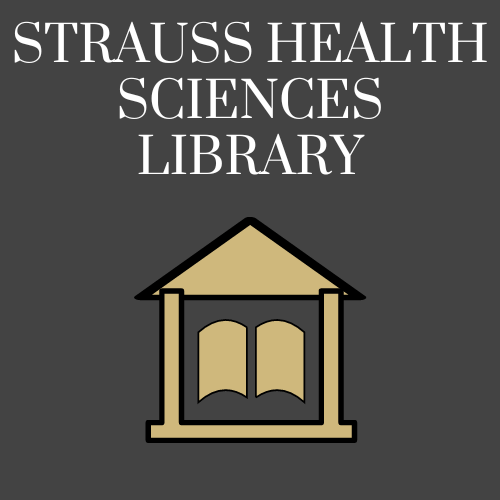Student Tools and Services
Commonly used OIT tools, services, and resources for students. To view all services, browse all tools and services.
Receive system status updates directly to your phone or email when you sign up for Statuspage. Customize which alerts and notifications you receive so you only get information pertinent to you.
Review the complete list of system alerts to learn about any planned outages related to OIT.
Get Help
Phone Support
Contact us over the phone for assistance
303-724-4357 (4-HELP from a campus phone)
7:30 a.m. to 6 p.m., Monday - Thursday
7:30 a.m. to 5 p.m., Friday

Chat Support
OIT chat support is currently unavailable. We are working to restore Chat capabilities as quickly as possible.
Please use phone support or one of our self service options for assistance during this time.

Self Service Portal
Enter a ticket for assistance
24/7 access to the OIT Service Center, your ticket will be replied to during normal hours of operation in the order it was received.
University Access Resources
When connecting from off-campus, there are several remote options based on your needs. You will be prompted for multi-factor authentication through Duo during login to the VPN or VMware Omnissa Horizon for remote access.
See full details
Single Sign On (SSO)
Category: OIT - Categories OIT - Type of software Remote Access Audience: Faculty Staff Students Cost: FreeAuthentication services to university units for departmental or campuswide applications that require the authentication of users based on their affiliation with the university.
See full details
Student Services on Campus
.png?sfvrsn=f334cbb_0&MaxWidth=300&MaxHeight=300&ScaleUp=false&Quality=High&Method=ResizeFitToAreaArguments&Signature=C45A079063A8C70E461DA0E8EDF3D65162CC450A)
Print Services
Print services are generally provided through your school or department. Contact the IT Professional(s) in your school or department for more information. You can also contact CU Anschutz Medical Campus print services which are available for all students, faculty, and staff. They are able to print posters, documents, signs, and more. To order a poster, students may use this link to connect to the campus print services poster order form.

Strauss Health Sciences Library
The Strauss Health Sciences Library links people, reliable health sciences knowledge, and technology in support of effective learning, quality health care, vital research, and engaging community service. The Strauss Health Sciences Library is located on the CU Anschutz Medical Campus. It is open for currently enrolled students, faculty, and staff. The library has numerous resources available.

Writing Center
The Writing Center at CU Anschutz Medical Campus is a free resource available to all university students who wish to improve as writers. Services include in-person and online one-on-one appointments. Professional Writing Consultants will work on any type of writing and any aspect of the writing process, including (but not limited to) idea-generation, research, organization, thesis development, source usage and grammar.
Academic Tools and Resources
Zoom
Category: Billing OIT - Categories OIT - Type of software Remote Access Software Web Conferencing Zoom Audience: Faculty Staff Students
Zoom is a best-in-class online communication and collaboration tool that provides video conferencing, web conferencing, and audio conferencing (both device-based and phone), as well as audio/video/sharing, all with an intuitive and easy-to-use user interface.
University Zoom Login
Welcome to Zoom
Meet and collaborate virtually using Zoom by logging in with your university credentials. All active faculty, staff and students are licensed for Zoom Meetings up to 300 participants at no cost. Zoom Webinar licenses are available for up to 3,000 participants. Visit the OIT Zoom Webinars webpage for pricing and additional information. A meeting versus webinar feature comparison is available on the Zoom support webpage.Prevent Zoombombing
Uninvited participants harassing students, faculty and staff during classes and meetings has been on the rise recently. It is very important to follow Zoom’s security best practices. One of the most basic rules is to never share Zoom meeting links on social media, the internet, or any public place. More information about Zoombombing and how to keep uninvited guests out of your meeting is available. In addition, you can review the Zoom and Cybersecurity Must-Knows.
Stay Secure
The university's Zoom encryption is configured for Health Insurance Portability and Accountability Act (HIPAA) and Family Educational Rights and Privacy Act (FERPA) compliance; however, be sure to use caution with sensitive information. To ensure the security and privacy of patient data, Zoom users must do their part as well.
In addition, with the university's systemwide HIPAA agreement with Zoom, OIT is able to enable features including:
- Record to the Zoom cloud for convenient sharing and storage (cloud recording storage is now available for 120 days) - more information is available from Zoom Cloud Recording
- Meeting participant / class attendance reports available - more information is available from Zoom Reports
- Chat copy and paste enabled - more information available from Saving in-meeting chat
Using Zoom for transmitting HIPAA information
Zoom encryption fully complies with HIPAA Security Standards to ensure the security and privacy of patient data. The company employs industry standard end-to-end Advanced Encryption Standard (AES) encryption using 256bit keys to help protect meetings. However, while Zoom is configured for HIPAA compliance, you should use thoughtfulness in the type of data shared and how the data is shared (same university HIPAA policies and procedures apply).
If your Zoom presentation contains HIPAA data, please use the following guidance:
- Make sure to use proper handling of links and do not share using unsecure means.
- All patient information is considered highly confidential and only the information needed for the intended purpose should be used by, and disclosed to, covered members who have a “need to know” (Minimum Necessary).
- Treat your Zoom meeting links as you would HIPAA data.
- Do not send email unencrypted. Review the Encrypt Your Emails webpage for more information.
- Invite only those allowed to view HIPAA data. (Minimum Necessary)
HIPAA compliance depends on all of us. Additional resources:
Training Resources
Getting Started
Zoom offers training and support resources. To get started, visit the Zoom Help Center. Additional resources include:
- Getting started on Windows and Mac
- Getting started with iOS devices
- Getting started with Android devices
- Frequently Asked Questions
- How to install on Mac
- Meeting passcodes
- Zoom default meeting settings and recommendations
- Audio, Video, Sharing
- Managing your Zoom recording
- Zoom meeting creation - no recurrence
- Checking for Zoom updates
- Changing Zoom settings in the desktop client or mobile app (select a desktop client or mobile app for additional information)
- Zoom screen - share a video
- How to test your microphone
- How to test your webcam
- Adding Zoom pronouns
Managing Chat
- Using in-meeting chat (click on the icon of the device you are using for detailed instructions)
- Personal note for your chat profile
- Mark a chat message as unread
- Using chat announcements
- Using your chat personal space
- Save in-meeting chat
- Using chat mentioned and slash commands
- Archiving chat messages using cloud storage
- Advanced chat encryption
Breakout rooms
Frequently Asked Questions
Additional Tools and Resources
Zoom
Category: Billing OIT - Categories OIT - Type of software Remote Access Software Web Conferencing Zoom Audience: Faculty Staff Students
Zoom is a best-in-class online communication and collaboration tool that provides video conferencing, web conferencing, and audio conferencing (both device-based and phone), as well as audio/video/sharing, all with an intuitive and easy-to-use user interface.
University Zoom Login
Welcome to Zoom
Meet and collaborate virtually using Zoom by logging in with your university credentials. All active faculty, staff and students are licensed for Zoom Meetings up to 300 participants at no cost. Zoom Webinar licenses are available for up to 3,000 participants. Visit the OIT Zoom Webinars webpage for pricing and additional information. A meeting versus webinar feature comparison is available on the Zoom support webpage.Prevent Zoombombing
Uninvited participants harassing students, faculty and staff during classes and meetings has been on the rise recently. It is very important to follow Zoom’s security best practices. One of the most basic rules is to never share Zoom meeting links on social media, the internet, or any public place. More information about Zoombombing and how to keep uninvited guests out of your meeting is available. In addition, you can review the Zoom and Cybersecurity Must-Knows.
Stay Secure
The university's Zoom encryption is configured for Health Insurance Portability and Accountability Act (HIPAA) and Family Educational Rights and Privacy Act (FERPA) compliance; however, be sure to use caution with sensitive information. To ensure the security and privacy of patient data, Zoom users must do their part as well.
In addition, with the university's systemwide HIPAA agreement with Zoom, OIT is able to enable features including:
- Record to the Zoom cloud for convenient sharing and storage (cloud recording storage is now available for 120 days) - more information is available from Zoom Cloud Recording
- Meeting participant / class attendance reports available - more information is available from Zoom Reports
- Chat copy and paste enabled - more information available from Saving in-meeting chat
Using Zoom for transmitting HIPAA information
Zoom encryption fully complies with HIPAA Security Standards to ensure the security and privacy of patient data. The company employs industry standard end-to-end Advanced Encryption Standard (AES) encryption using 256bit keys to help protect meetings. However, while Zoom is configured for HIPAA compliance, you should use thoughtfulness in the type of data shared and how the data is shared (same university HIPAA policies and procedures apply).
If your Zoom presentation contains HIPAA data, please use the following guidance:
- Make sure to use proper handling of links and do not share using unsecure means.
- All patient information is considered highly confidential and only the information needed for the intended purpose should be used by, and disclosed to, covered members who have a “need to know” (Minimum Necessary).
- Treat your Zoom meeting links as you would HIPAA data.
- Do not send email unencrypted. Review the Encrypt Your Emails webpage for more information.
- Invite only those allowed to view HIPAA data. (Minimum Necessary)
HIPAA compliance depends on all of us. Additional resources:
Training Resources
Getting Started
Zoom offers training and support resources. To get started, visit the Zoom Help Center. Additional resources include:
- Getting started on Windows and Mac
- Getting started with iOS devices
- Getting started with Android devices
- Frequently Asked Questions
- How to install on Mac
- Meeting passcodes
- Zoom default meeting settings and recommendations
- Audio, Video, Sharing
- Managing your Zoom recording
- Zoom meeting creation - no recurrence
- Checking for Zoom updates
- Changing Zoom settings in the desktop client or mobile app (select a desktop client or mobile app for additional information)
- Zoom screen - share a video
- How to test your microphone
- How to test your webcam
- Adding Zoom pronouns
Managing Chat
- Using in-meeting chat (click on the icon of the device you are using for detailed instructions)
- Personal note for your chat profile
- Mark a chat message as unread
- Using chat announcements
- Using your chat personal space
- Save in-meeting chat
- Using chat mentioned and slash commands
- Archiving chat messages using cloud storage
- Advanced chat encryption